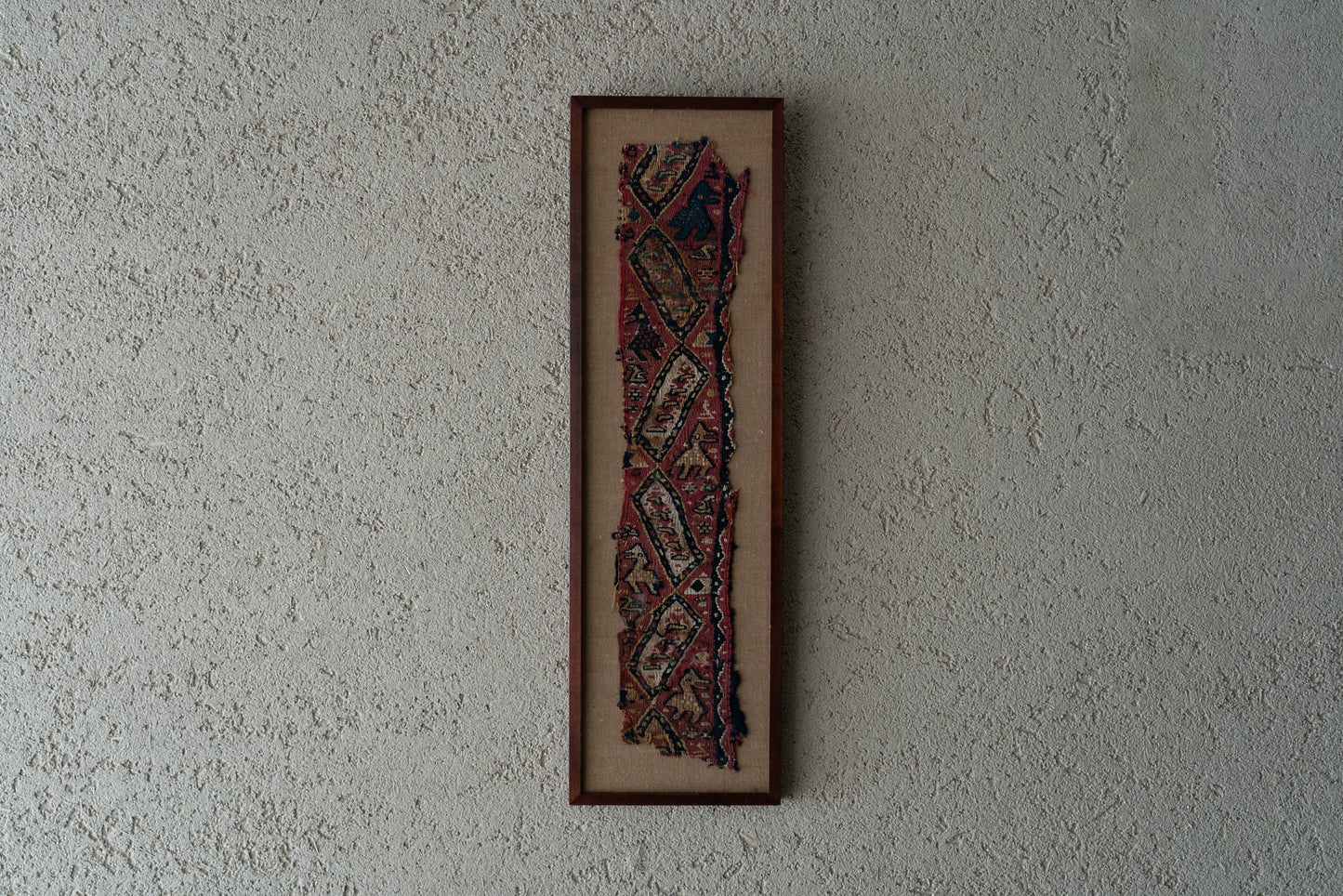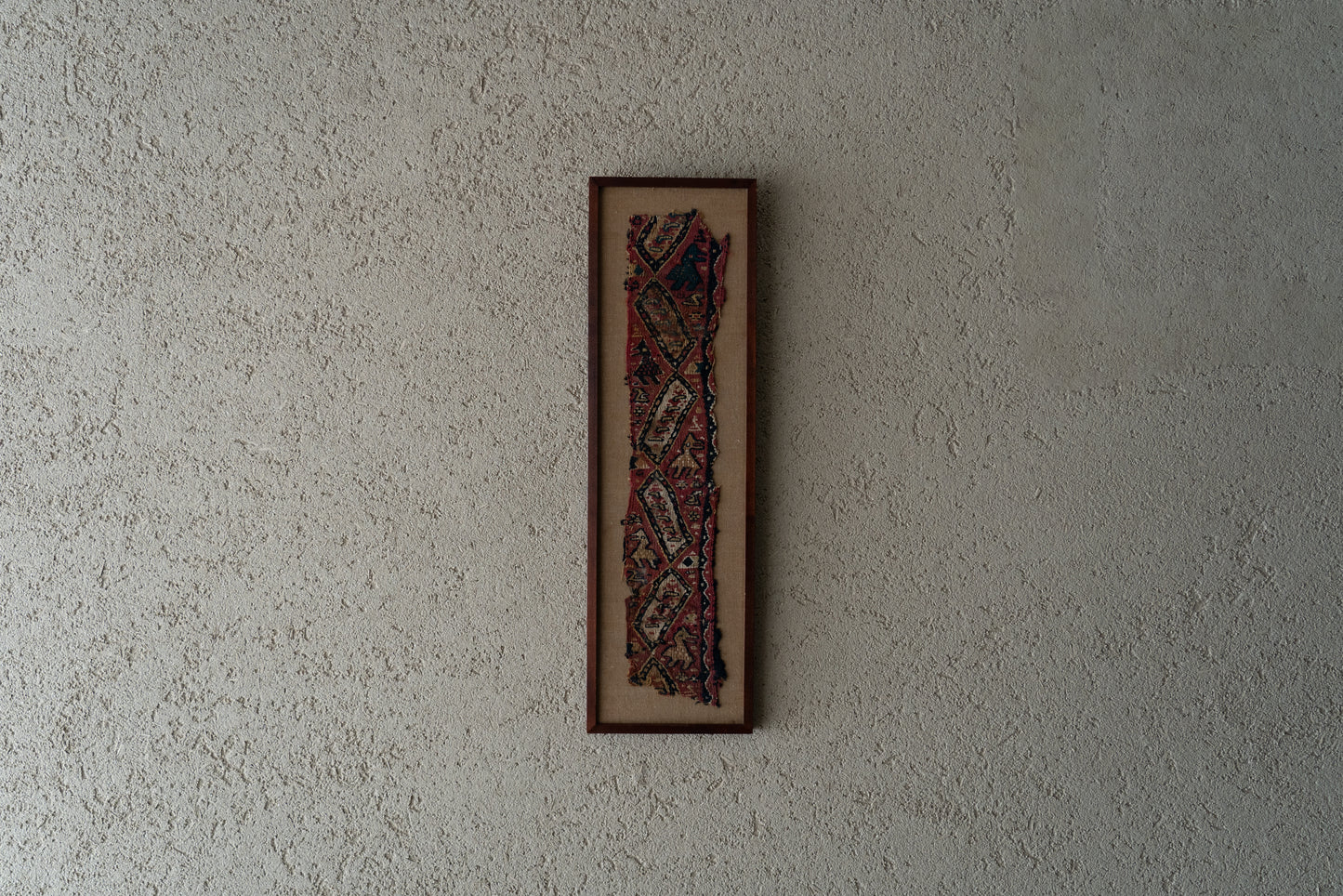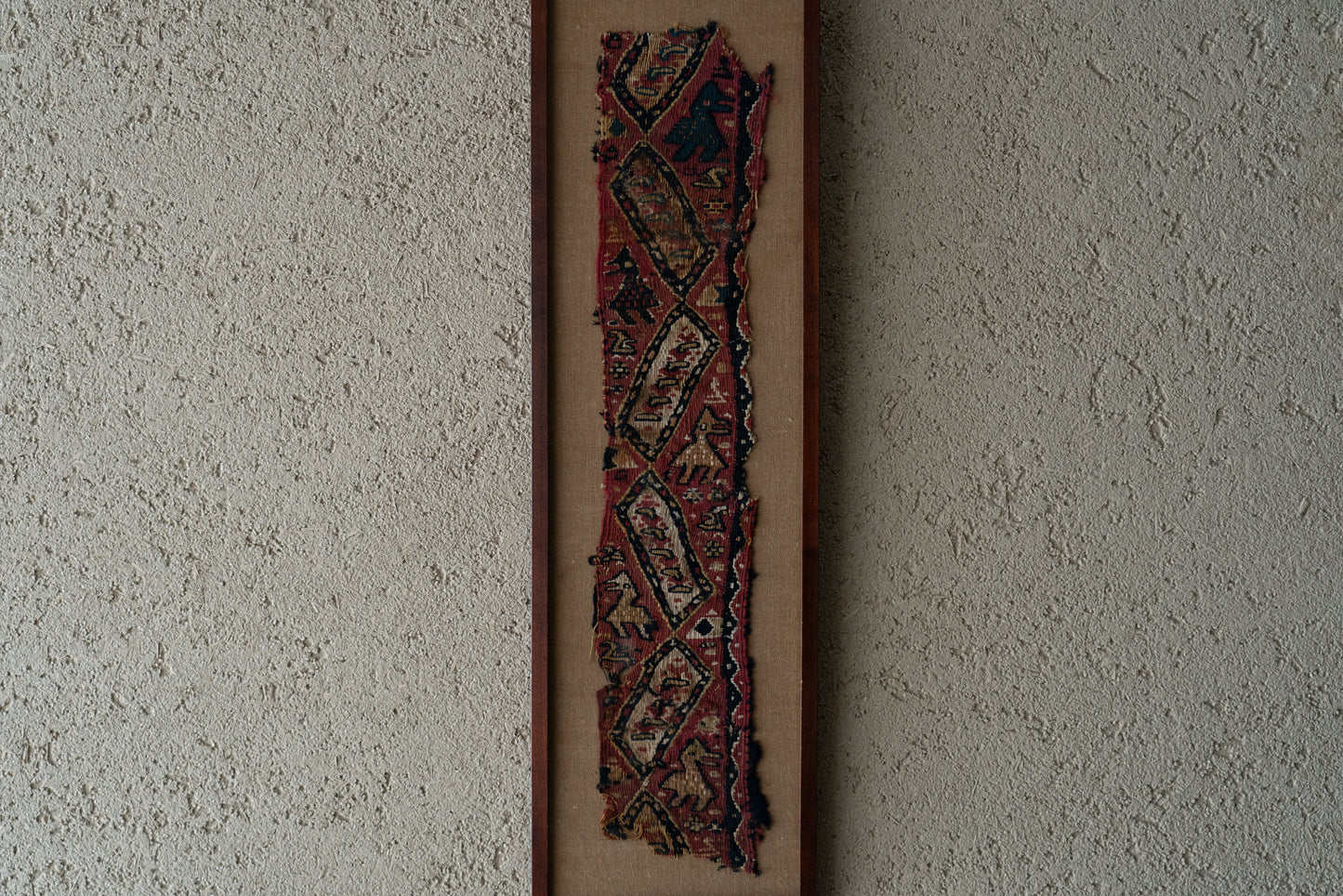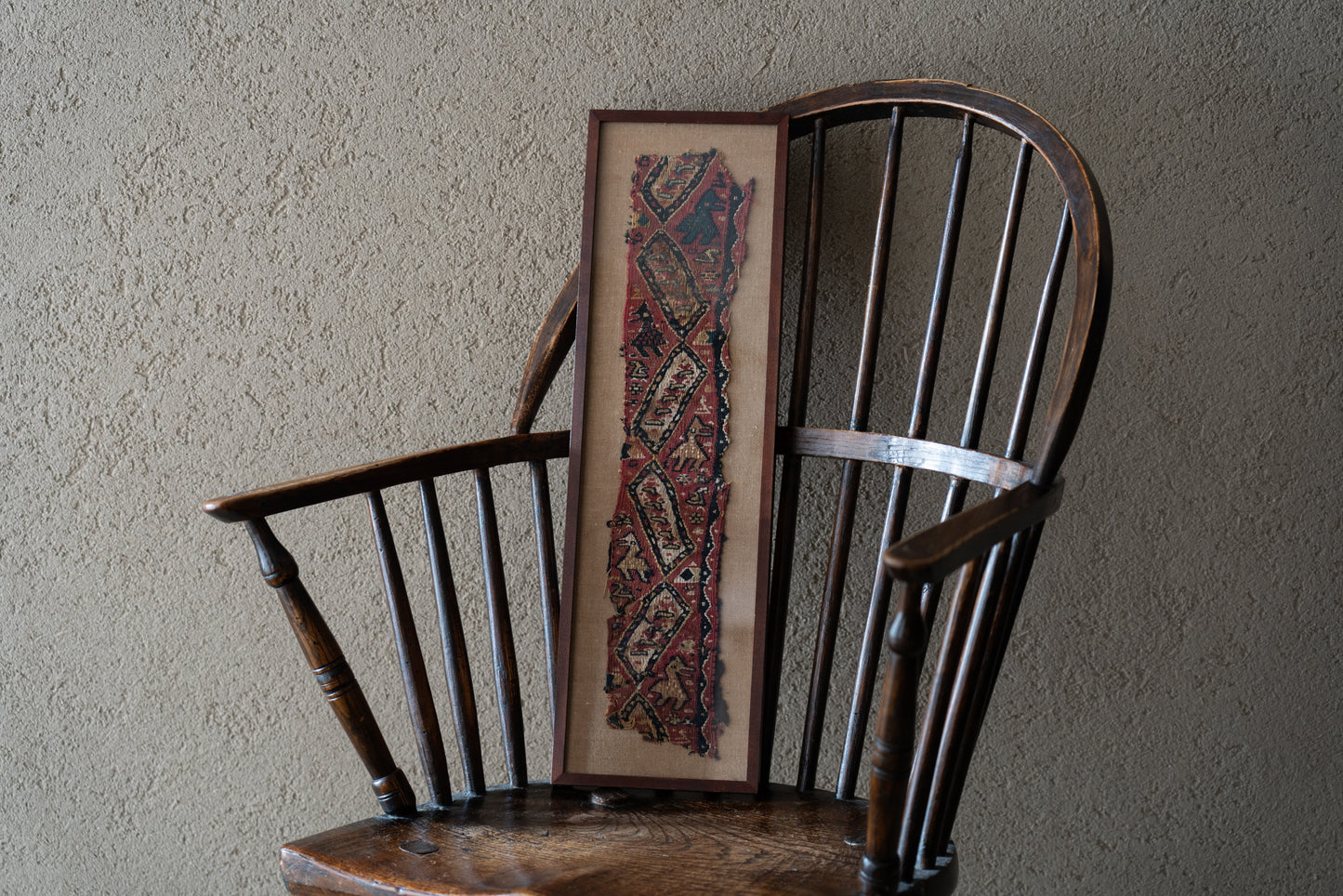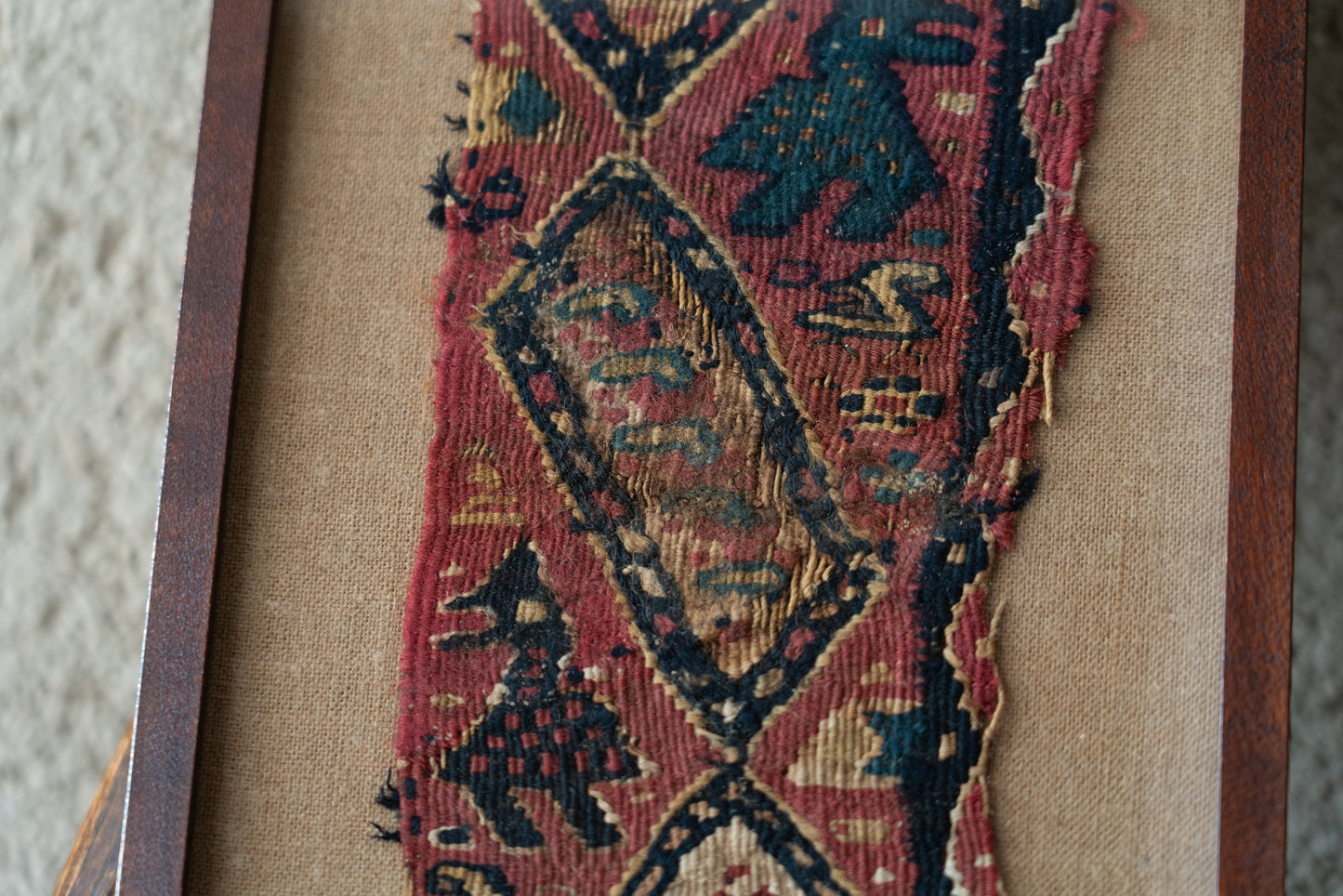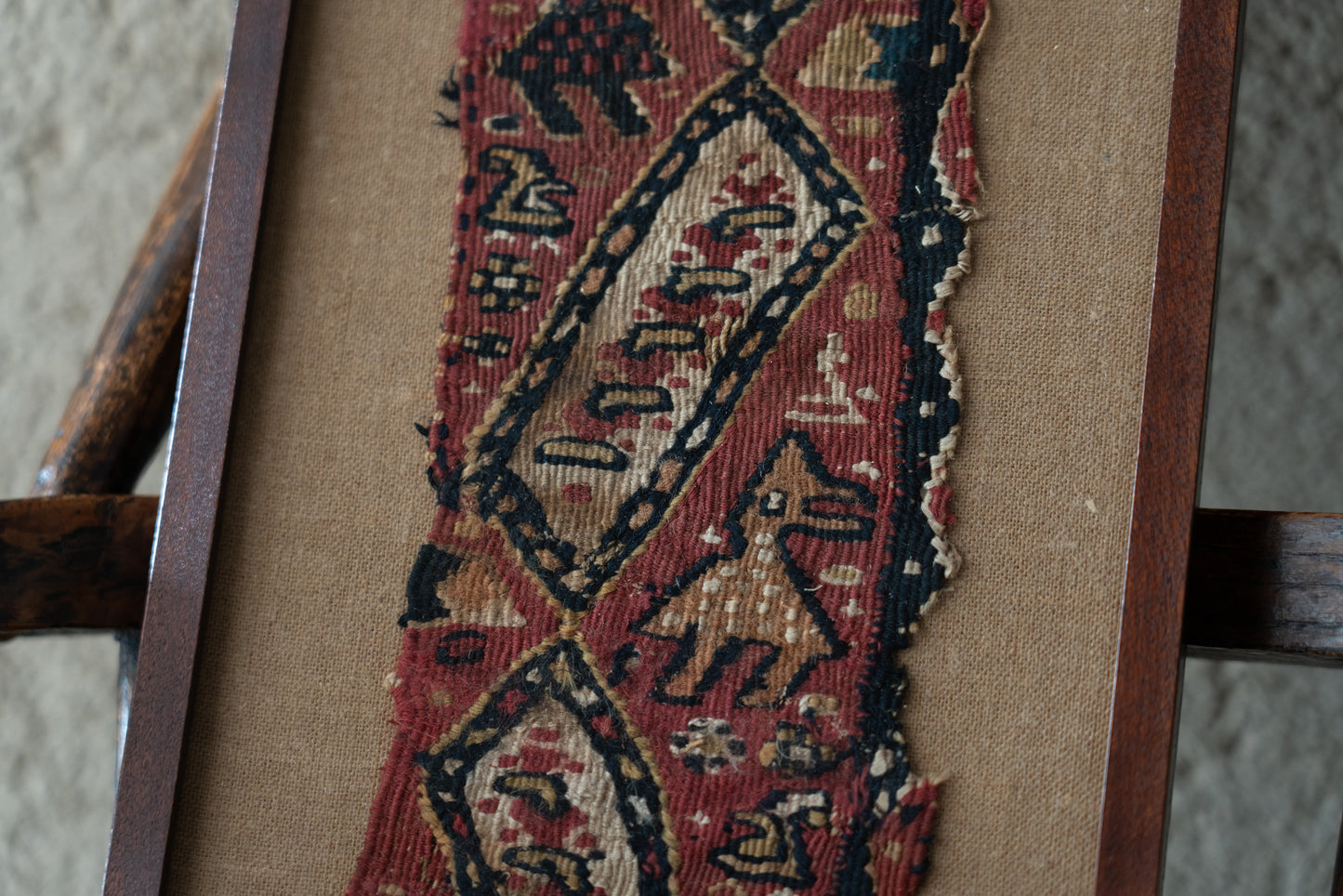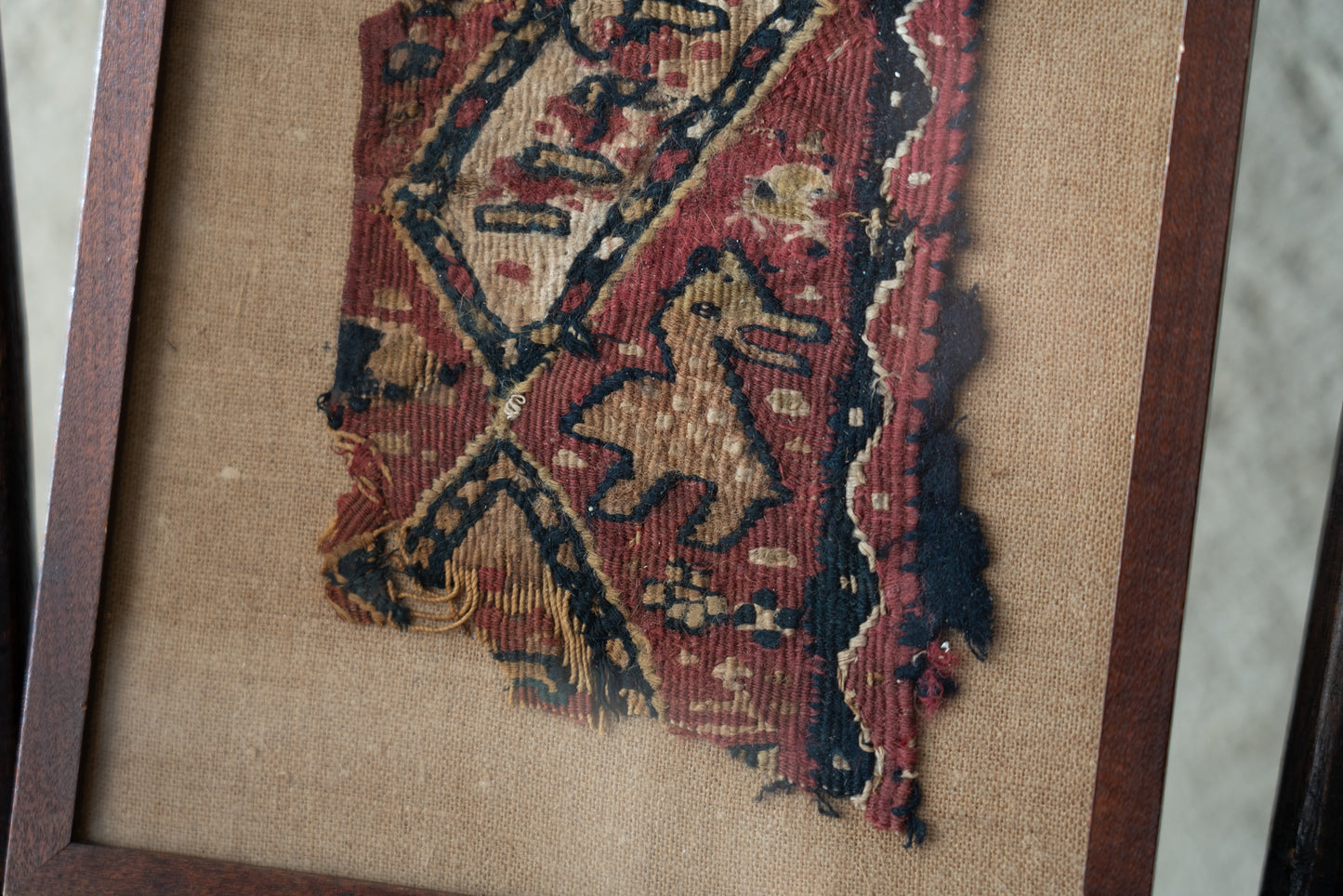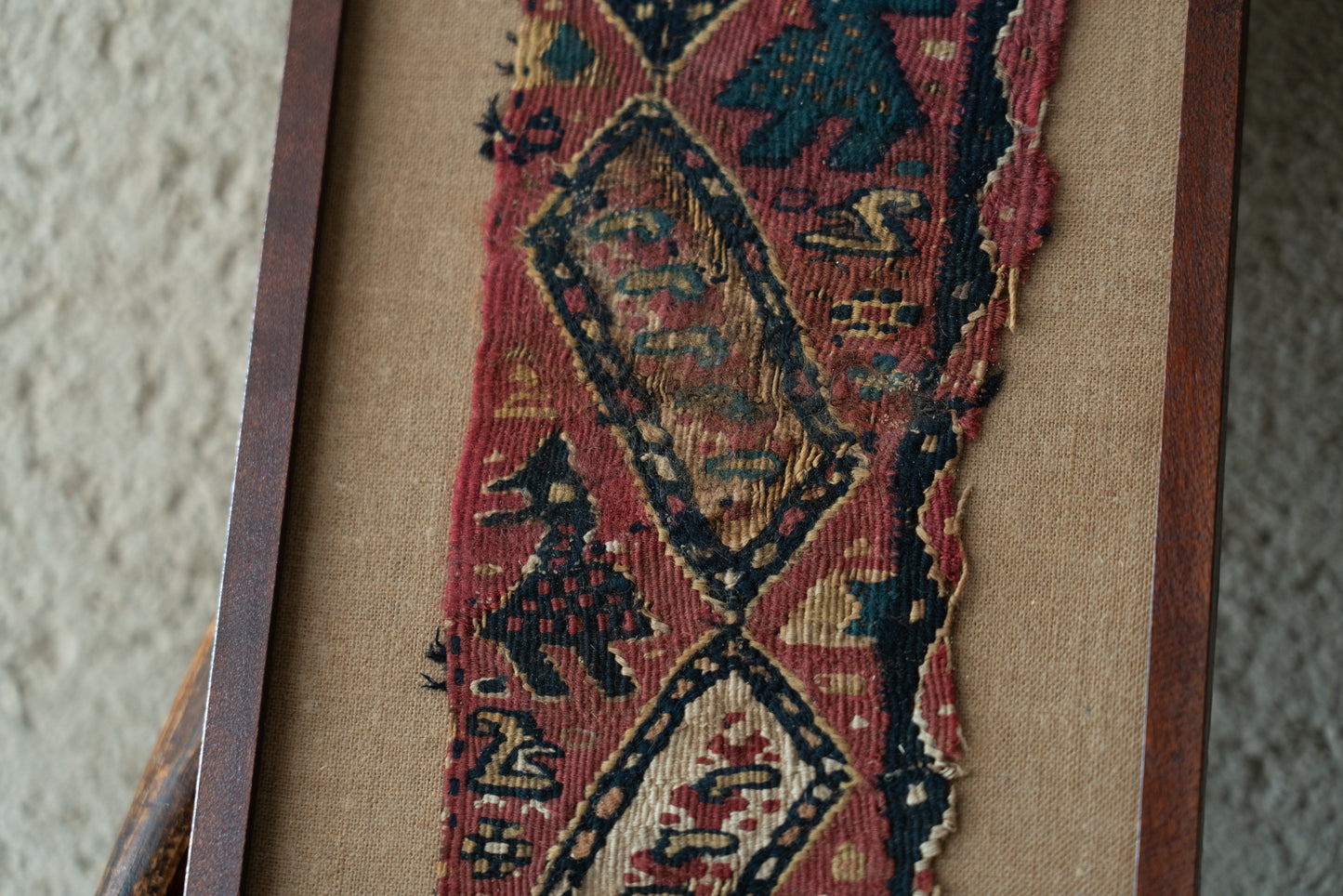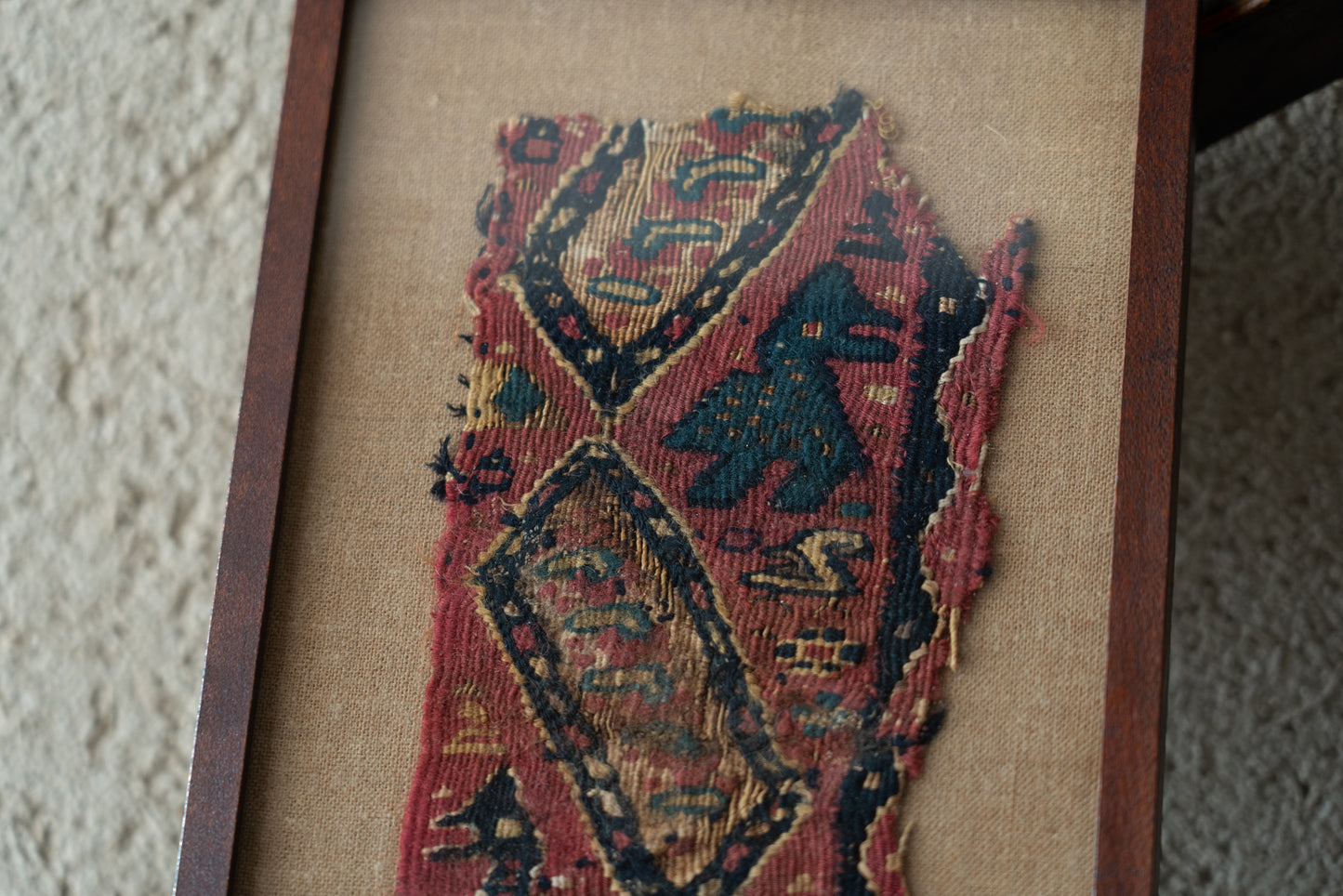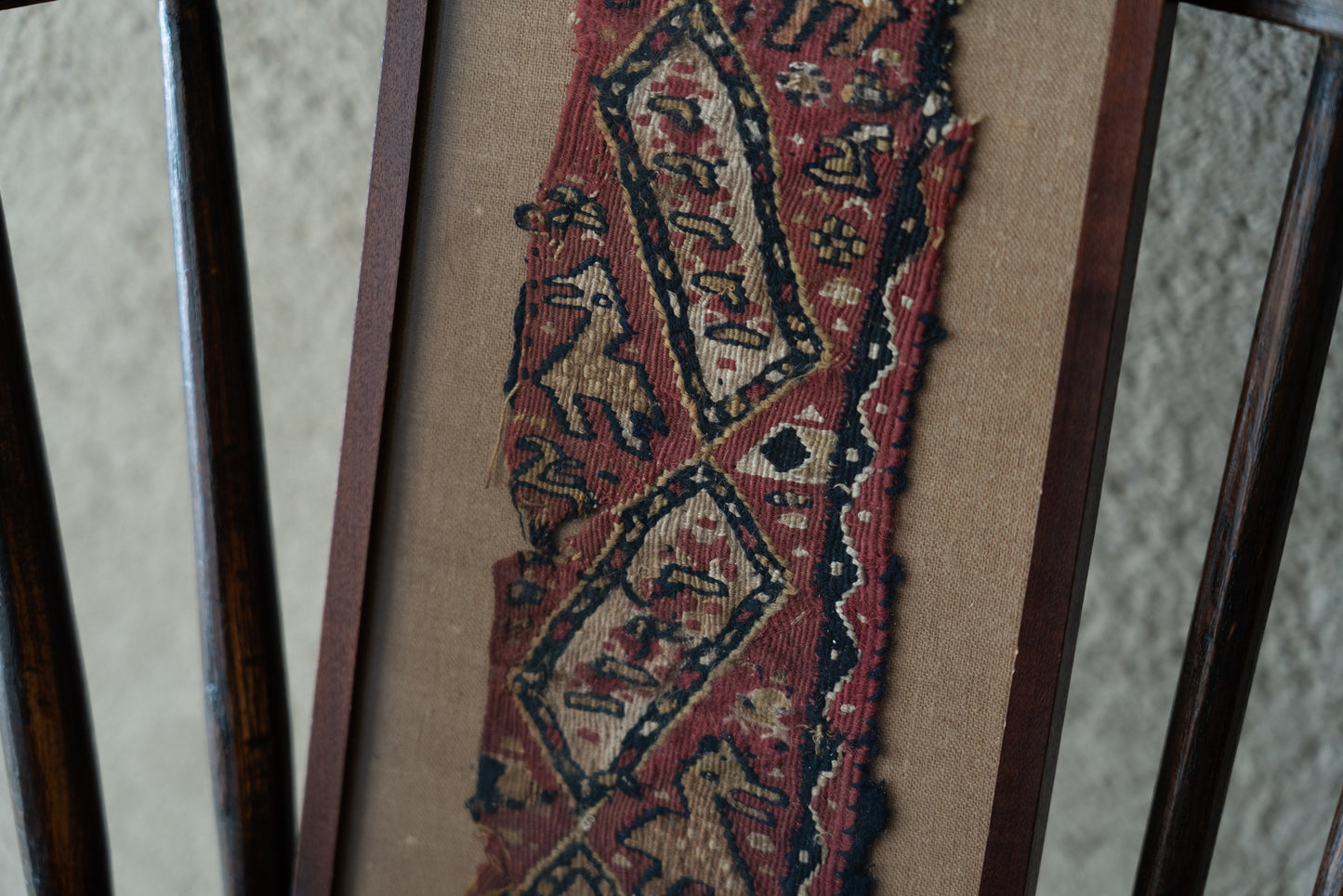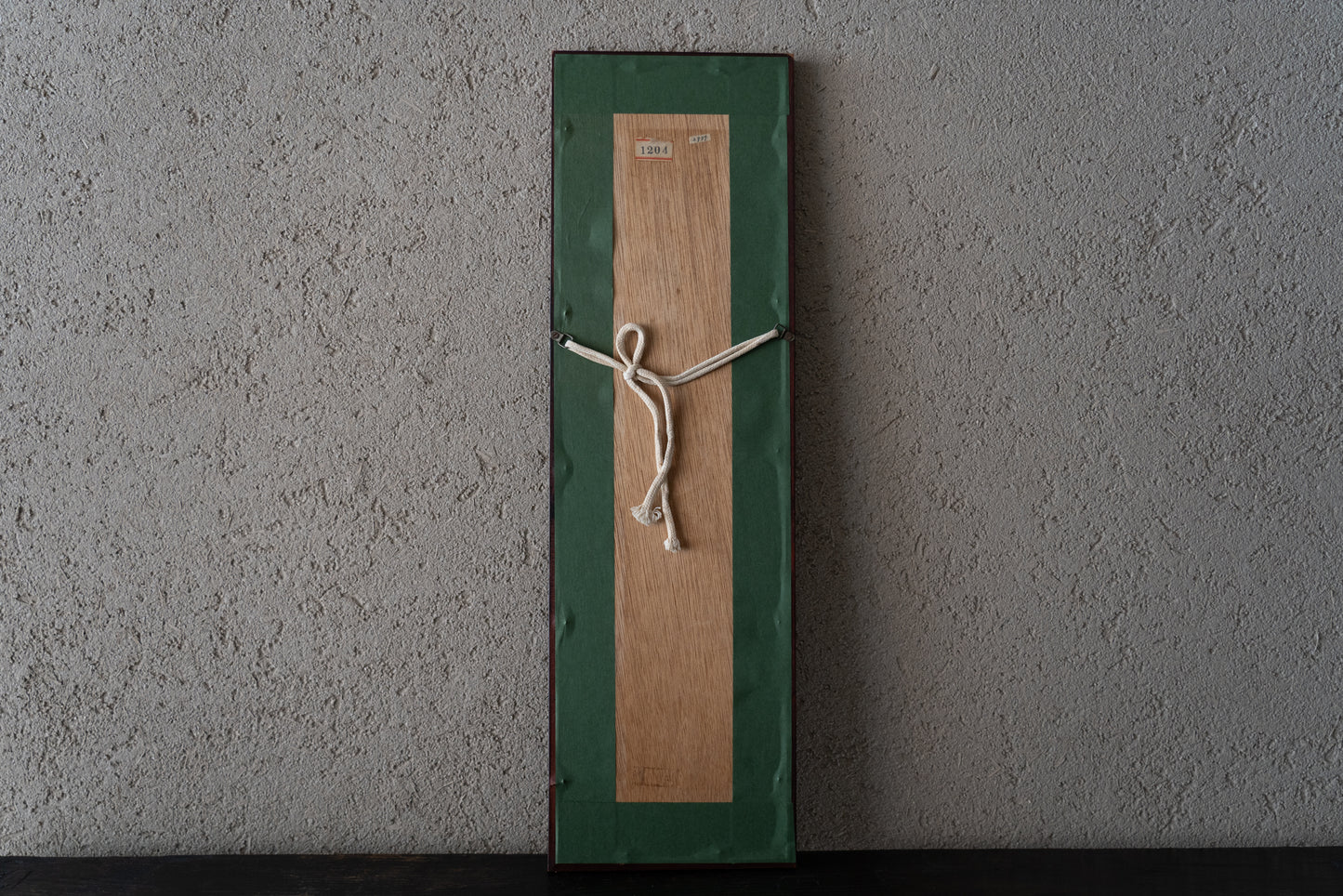Coptic textile with Birds and Geometricde
- Region/Era Around Egypt / 6th-7th century
- Size Frame: H53.0×W15.9cm Cleft: H47.5×W8.8cm
- Condition Good condition
- Accessory frame
- No. 39nk-128
We would like to introduce you to Coptic textiles featuring adorable birds and geometric patterns.

Coptic textiles are textiles created and developed by the Coptic people living in Egypt.
Coptic clefts can be divided into three periods: the early period ( 3rd century to mid- 5th century), the middle period ( 5th-8th centuries), and the late period ( 8th-12th centuries), with the middle period (5th to 8th centuries ) said to be the heyday.
 The fabric in this piece features a zigzag geometric pattern bordered in black on a vibrant vermilion background.
The fabric in this piece features a zigzag geometric pattern bordered in black on a vibrant vermilion background.
Around it is a bird-like animal with its mouth open, and surrounding it are small flowers and birds.
The animals are depicted in a caricature style, and their adorable two-headed figures are sure to make you squint your eyes.

Similar items are featured in the document "Coptic Fabrics: Ancient Egyptian Dyeing and Weaving" by dye artist Taizo Minagawa.
This piece depicts a bird with a human face, and although the pattern is slightly different from the one in question, there is no doubt that they are similar items.


Enlarged view of the whole/part of the Bird and Human Face Tapestry (Source: Taizo Minagawa (ed.), Madoka Suzuki (commentary), "Coptic Fabrics: Ancient Egyptian Textiles 2 ," 1984 , Utsudō Publishing)
According to Minagawa, this pattern is common to Coptic textiles in the Sassanid Persian style from around the 7th century.
While the middle period is characterized by many vibrant colors, in the later period under Islamic rule, idolatry was banned, so geometric patterns became more common and the colors became more muted.
The vivid colors and caricature-style designs of this piece are also characteristic of the mid-period.

However, Minagawa goes on to say that similar pieces of fabric with Arabic writing woven into them that are estimated to date to the 9th or 10th century have been excavated, so it is possible that this motif was produced in the 9th or 10th century, and this possibility cannot be ruled out.
The Sassanid Empire of Persia was the powerhouse of the ancient Orient, ruling over a vast area from Iran to Western Asia and Central Asia from the 3rd to the 7th centuries.
Many people may already know about this, as many Sassanid artifacts were brought to the Shosoin Repository via the Silk Road.
The conquest of Egypt began in 615 , and by 621 they had occupied the entire country.
Coptic textiles have incorporated a wide variety of designs, such as Hellenistic expressions from Greek and Roman mythology in the early period, Christianity in the middle period under the rule of the Eastern Roman Empire, Sassanid Persia in the later period, and later Islam.

This work was created over 1000 years ago.
This shows how excellent the sense of patterns and colors was among the people around Egypt at that time.
As this is an excavated item, there are some frayed edges and stains, but the design remains intact and does not interfere with viewing.
It is framed so you can hang it on your wall and enjoy it.

Also, the back of the frame is fastened with old nails, so please be careful when handling it.

This Coptic fabric is fun to look at.
The adorable and somewhat humorous pattern is the unique charm of this fabric.
The simple form and free expression of Coptic textiles still resonate with us today.
*Box is not included.
[Related articles]
▶ Web store "Coptic textile with Angel design"
▶︎ blog "Coptic textile with Angel design"
[References]
Taizo Minagawa (ed.), Madoka Suzuki (commentary), "Coptic Textiles: Ancient Egyptian Textiles 2 ," 1984 , Utsudō
To pick up and see the actual item in the gallery.
Reservation